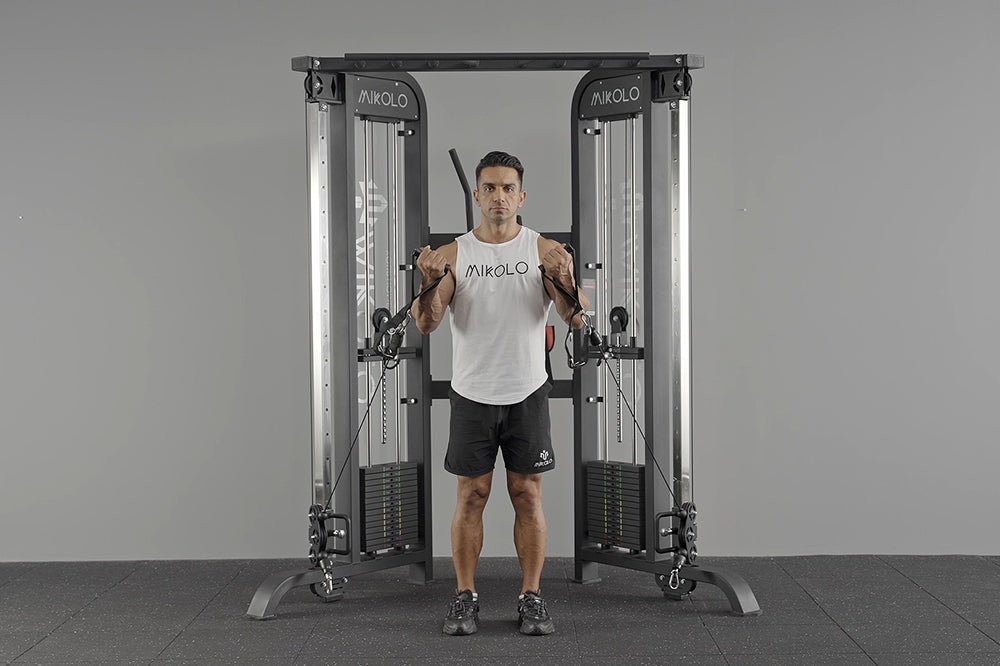If you've ever stepped into a gym and wondered why certain muscles seem to respond faster to training, you're not alone. Some muscles just have a knack for growing quicker — if you know how to train them right. Let’s break down what is the easiest muscle to build, why that’s the case, and how you can make the most out of it.
Understanding Muscle Growth Basics
Muscle growth (hypertrophy) happens when you challenge your muscles through resistance, creating microscopic tears that your body then repairs, making the muscle fibers bigger and stronger. However, not all muscles are created equal when it comes to ease of growth.
Factors like fiber type, muscle size, blood flow, and everyday use all play a role.
Main muscles that typically grow faster have a higher percentage of fast-twitch fibers (great for strength and size gains) and aren't constantly worked during normal daily activities. That’s why specific muscles can pack on noticeable size with relatively less training time.
So, What’s the Easiest Muscle to Grow?
When people ask, "what's the easiest muscle to build?" the glutes, trapezius, and quadriceps often top the list. But if we had to choose one, the trapezius muscles (traps) usually take the crown.
The traps respond extremely well to resistance and heavy loads, especially because they're designed to handle stress. Shrugs, deadlifts, and rows target them directly and indirectly, giving you double the growth stimulus without needing endless isolation work.
Why Traps Are Often the Easiest Muscles to Build
-
Heavily involved in compound lifts: Deadlifts, rows, cleans, and even squats activate the traps.
-
Can handle heavy loads: The traps are used to bearing and stabilizing heavy weights, which triggers hypertrophy quickly.
-
Fast recovery: The traps can recover relatively quickly compared to other muscles, allowing for more frequent training.
Other easiest muscles to grow include:
-
Glutes: Especially for beginners, glute muscles can grow rapidly through squats, hip thrusts, and lunges.
-
Quads: Heavy squatting, leg pressing, and lunging exercises deliver fast results because the quadriceps are powerful and respond well to load.
-
Deltoids (shoulders): Although smaller, delts react well to higher volume and varied angles, leading to quicker visible changes.
What Are the Easiest Muscles to Build for Beginners?
If you're just starting your fitness journey, your body's natural "newbie gains" will make nearly every muscle grow faster. Still, muscles like the traps, glutes, and quads usually grow the fastest because:
-
They're relatively large muscles.
-
They’re less taxed by daily activities, so when trained properly, they respond with new growth.
-
They recover faster, letting you train them multiple times per week without overtraining.
Training Tips to Maximize Easy Muscle Growth
Even if a muscle is naturally "easier" to grow, it still takes smart training and consistency. Here’s how to make the most of it:
-
Focus on Progressive Overload: Continuously challenge your muscles by increasing the weight, reps, or sets over time.
-
Prioritize Compound Movements: Exercises like deadlifts, squats, bench presses, and rows work multiple muscle groups, including the ones that grow easiest.
-
Train with Frequency: Target the same muscle groups two to three times a week if recovery allows.
-
Dial in Your Nutrition: Growth won't happen without enough calories and sufficient protein intake.
-
Get Proper Rest: Muscles grow during recovery, not while training.
Final Thoughts: Maximize What Grows Fast
Knowing what are the easiest muscles to build gives you an advantage. Whether it's focusing on your traps, glutes, quads, or shoulders, these muscles will reward you with visible progress early in your fitness journey — if you train them consistently and smartly.
Remember, every body is different. Some people might see their biceps blow up quickly, while others watch their legs grow without much effort. The key is to pay attention to how your own body responds and adjust your training accordingly.









































Leave a comment
This site is protected by hCaptcha and the hCaptcha Privacy Policy and Terms of Service apply.